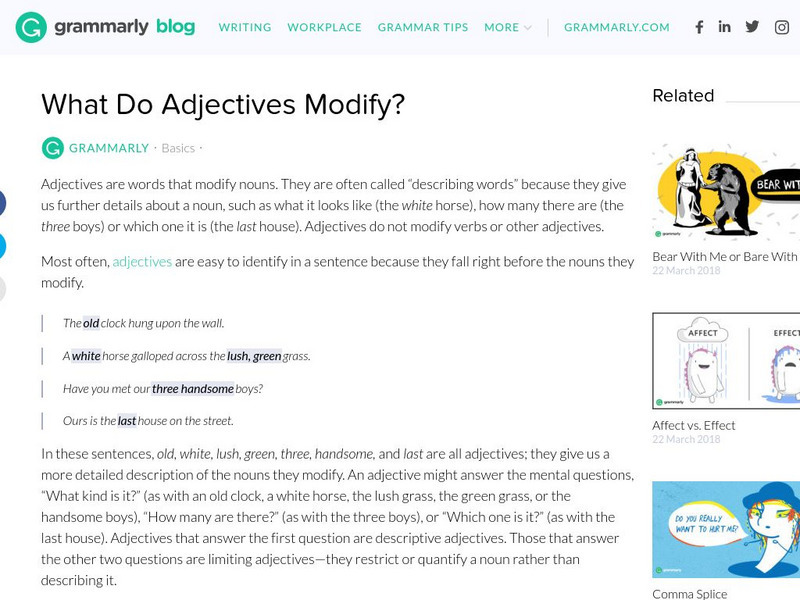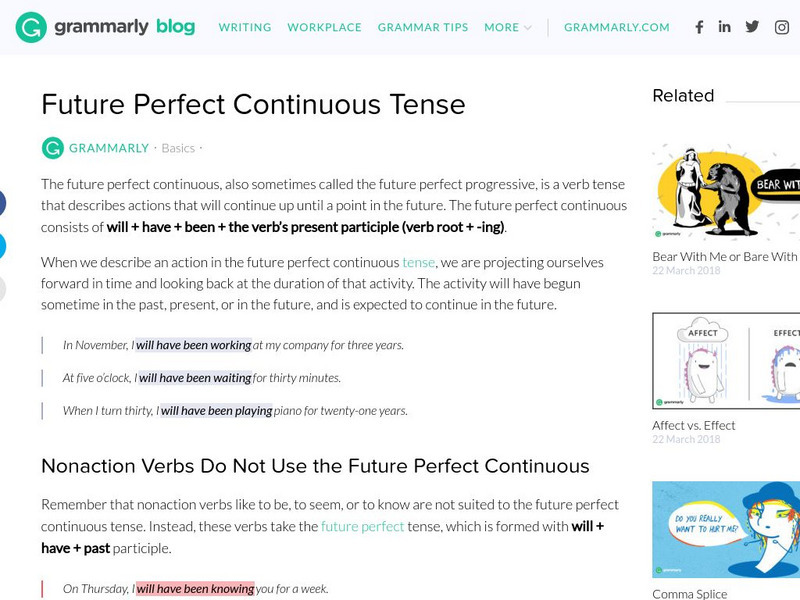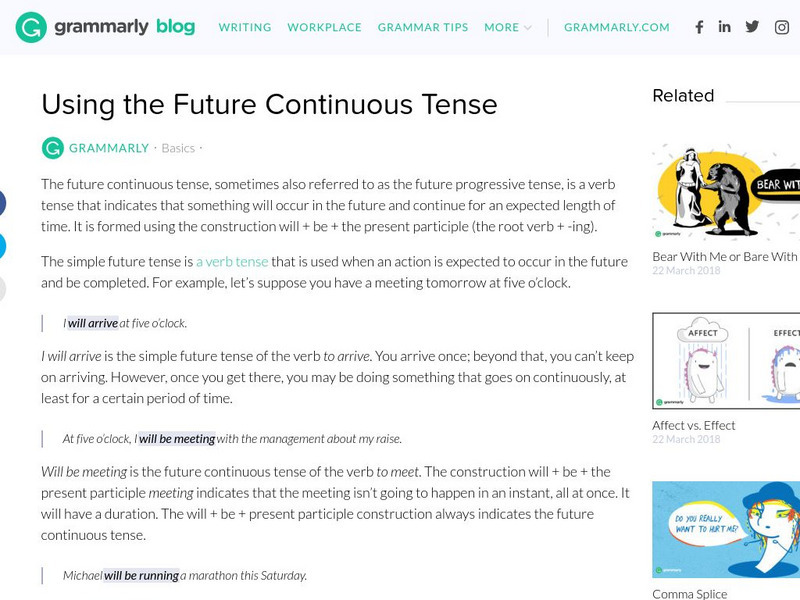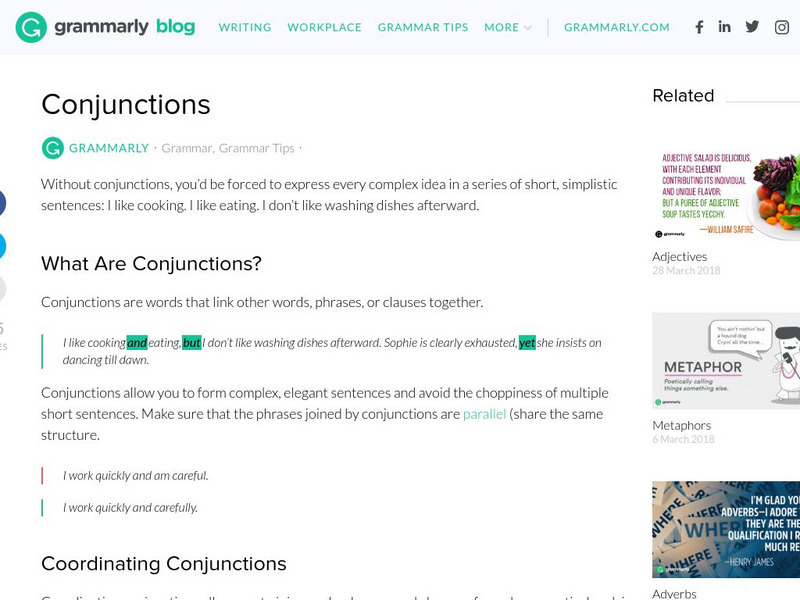Grammarly
Grammarly Blog: What Do Adjectives Modify?
This blog article explains that adjectives modify nouns and provides examples. It also discusses predicate adjectives.
Grammarly
Grammarly Blog: Verb Tense Consistency: Grammar Rules
This page focuses on the need for verb tense consistency on a clause level. It is important to maintain the same verb tense in a clause; if the time changes, use a second sentence.
Grammarly
Grammarly Blog: Future Perfect Continuous (Progressive) Tense
This page explains what future perfect continuous (progressive) tense means and how it is formed; examples are provided.
Grammarly
Grammarly Blog: Colon
This page focuses on the colon and provides links to five sets of rules for colon use and misuse with appropriate examples.
Grammarly
Grammarly Blog: Colon Use
This page explains the rules for using a colon in a series and to separate one idea from another and offers examples.
Grammarly
Grammarly Blog: Colon Between Independent Clauses
This page explains the use of a colon between two closely related independent clauses in a sentence when the emphasis is on the second clause. Examples are provided.
Grammarly
Grammarly Blog: Colon:independent Clause & List, Quote, Appositive, Idea
This page explains the use of a colon when an independent clause is followed by a closely-related dependent clause that clarifies or gives more information about the independent clause. Examples are show with lists, quotes, appositives,...
Grammarly
Grammarly Blog: Abstract Nouns
This page explains that an abstract noun is not identifiable by any of the five senses and provides examples.
Grammarly
Grammarly Blog: Possessive Pronouns: Rules and Examples
An explanation with examples of possessive pronouns and how they are used in sentences.
Grammarly
Grammarly Blog: When Should I Spell Out Numbers?
This page focuses on when to write figures and numbers in writing; it provides the rules for both general writing and for technical, scientific, and complex writing. Examples are provided.
Grammarly
Grammarly Blog: Closed Compound Words
This page explains closed compound words, one word compounds formed by two words, and provides examples.
Grammarly
Grammarly Blog: Using the Future Continuous Tense
This page explains what future continuous (progressive) tense means and how it is formed and provides examples.
Grammarly
Grammarly Blog: What Is a Generic Noun?
This page discusses generic nouns, non-specific nouns such as in "a gang of boys," as compared to collective nouns such as "a pride of lions." Several examples of generic noun usage are provided.
Grammarly
Grammarly Blog: Connecting Sentences
This Grammarly Handbook resource provides ways to connect sentences using transition words and punctuation (colons and semi-colons). Includes a list of transitional words and their uses, and a discussion of how punctuation is used to...
Grammarly
Grammarly Blog: Capitalization: The First Word in a Direct Quote Sentence
This page explains the rules for capitalizing direct quotes; if the quote is a sentence, capitalize it. If the quote is not a complete sentence, capitalize only what was capitalized in the original direct quote.
Grammarly
Grammarly Handbook: Evaluating Resources
This page explains the need for evaluating resources and offers links to rules for evaluating primary, secondary, or tertiary resources and determining if resources are good or bad.
Grammarly
Grammarly Blog: Conjunctions
This page focuses on conjunctions including what conjunctions are; the types of conjunctions: Coordinating, Correlative, and Subordinating; how to start sentences with conjunctions, examples of each of the above, and lists for each type...
Grammarly
Grammarly Handbook: Cliches
This page focuse on cliches and explains why they should not be used in formal writing; it provides examples of other words to get the point across more clearly.
















